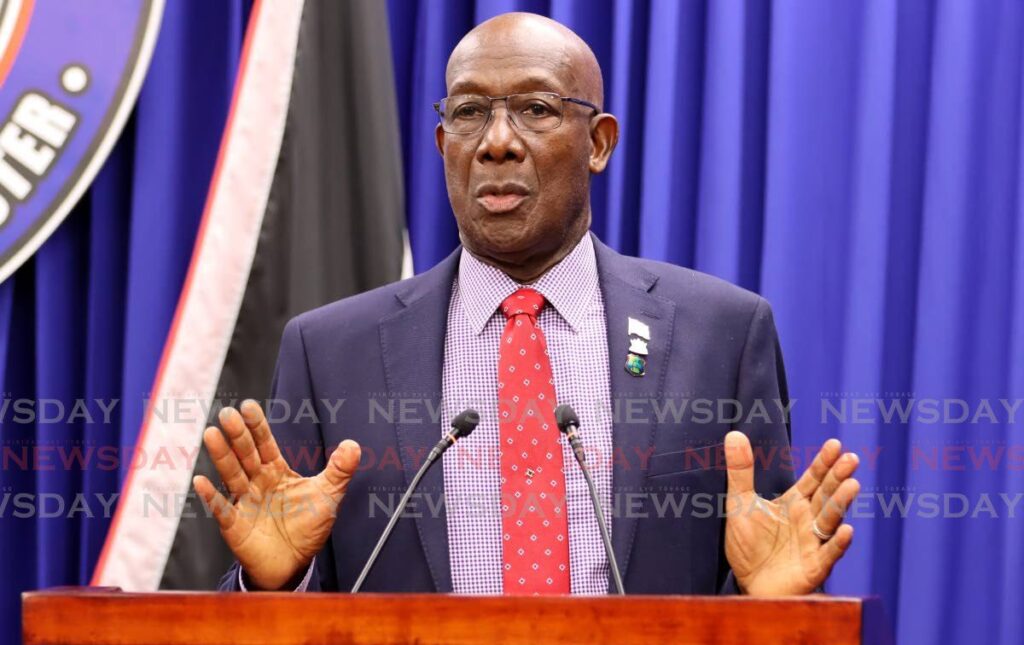Trinidad and Tobago demands better

THE STATEMENT by the Office of the Prime Minister on July 16, in response to crime, was an underwhelming repeat of history.
If we often wonder what new things can be said about this decades-old problem, one gets the impression elected officials are wondering too.
As a nation, we demand better.
After a particularly bloody weekend, Dr Rowley, we were told, once again met with heads of the state security apparatus. In the July 16 statement, he articulated “serious concerns” about the violence and “the continued use of illegal high-powered assault weapons.” He “discussed the need for a more proactive, intelligence-driven” approach. It was a copy and paste of the past.
Even the statement’s sole announcement of “sustained joint operations, particularly in areas where there is a known concentration” of lawbreaking, was an old hat.
Joint operations and joint patrols can increase visibility and reassure the public. But the idea of profiling so-called hot spots has long proven offensive and useless. Crime is everywhere: malls, swanky car dealerships, pizza joints, even in once-idyllic Tobago, where just last week the same state security apparatus convened after the island's first-ever quadruple murder.
If the OPM’s message inspired déjà vu, its issuance was in response to developments that also, unnervingly, echoed the past.
Thirteen years ago, a spate of killings precipitated a state of emergency. That August 2011 weekend saw 11 people killed. This weekend saw at least 14 people murdered.
Government is between a rock and a hard place.
Having consistently ruled out ever declaring a constitutional emergency, because of the deleterious impact it would have on business, it finds itself in a situation in which crime is so rampant it is arguably having the exact same impact. And citizens are paying.
If emergency powers are ever again invoked, we believe it should not be a fly-by-night matter. It should be part of a strategic plan to target stores of illegal firearms and to interdict significant figures against whom there is already actionable evidence. In other words, it should not be a gimmick.
Meanwhile, citizens are already living under self-imposed curfews. They feel safe nowhere, not even in their homes, given home invasions. Crime has become a giant black hole, into which the anguished cries of civil society, police and government rhetoric, grand regional conferences, precious singing contests and pan advocacy are all sucked.
The only way out is through new approaches and asking tough questions.
In such a small country, is the divisional system in the police working? Why are time and effort being wasted policing minor offences? Why is there no reform of prison remand? Why is the SSA probe dragging? Why is gun licensing over-politicised? And if the PM can meet his Tobago opponents on crime, why not the bail-legislation-supporting Opposition?

Comments
"Trinidad and Tobago demands better"